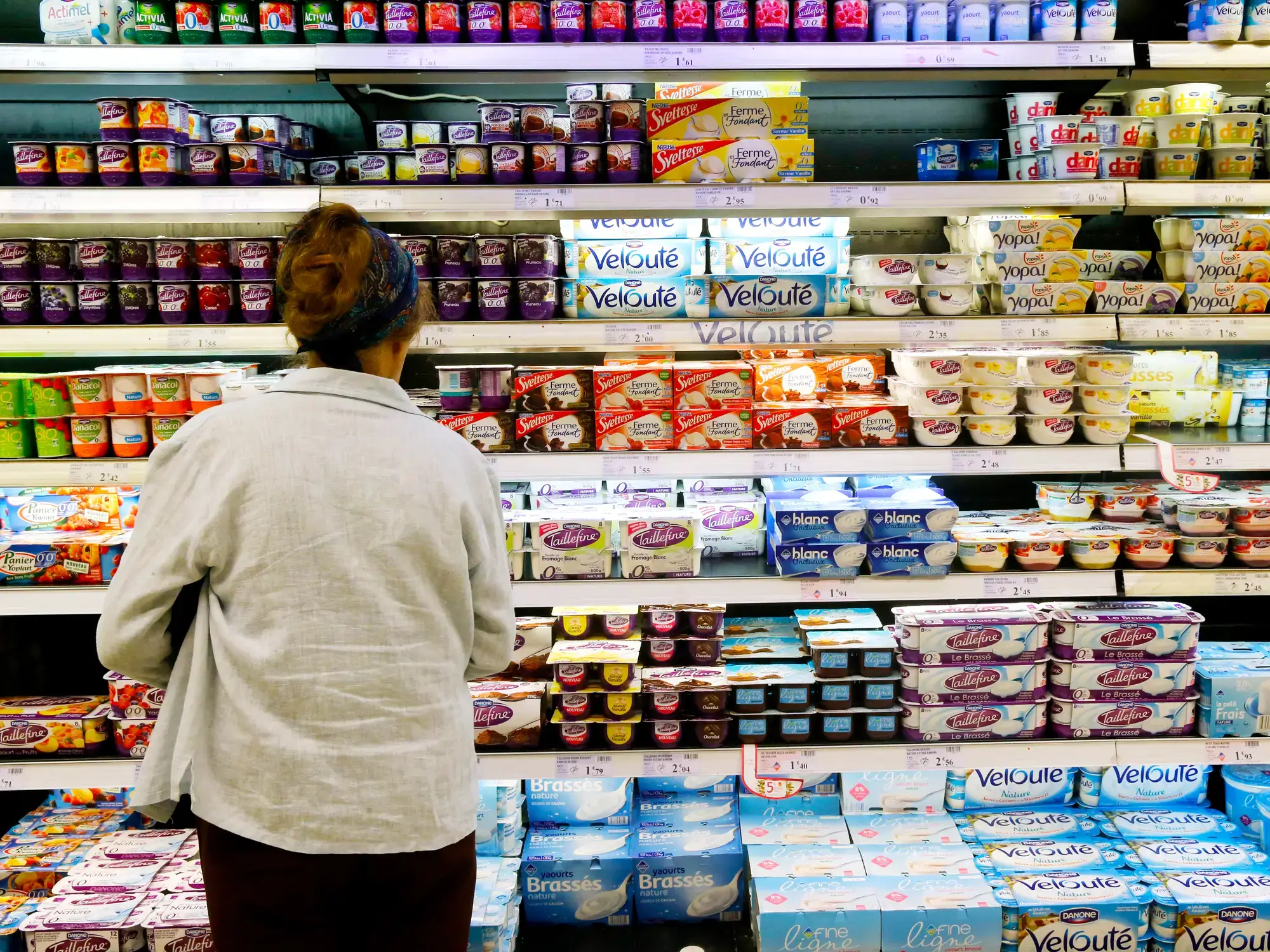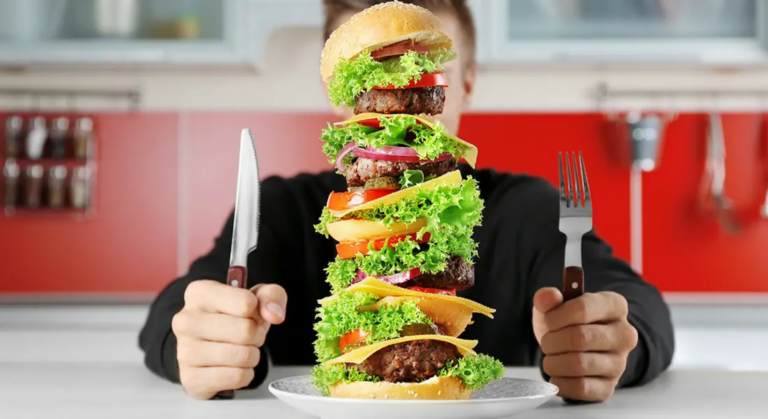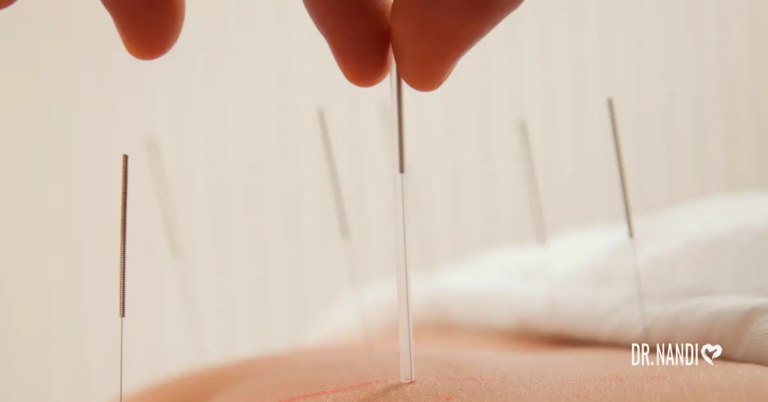Are you making health-conscious choices during your weekly grocery runs? You might be filling your cart with what you believe are healthy foods. But beware of hidden culprits that could sabotage your efforts – added sugar!
It’s a sneaky and all too common ingredient that disguises itself in various products, even those that seem wholesome at first glance. Did you know that even in the realm of packaged healthy foods, there may be lurking culprits known as “added sugar”?
The Unhealthy Truth Lurking in Your Grocery Cart
A comprehensive study by researchers from The George Institute for Global Health analyzed supermarket purchasing data from nearly 7,200 Australian households over a year. The findings revealed a startling truth about our consumption habits, particularly regarding added sugar in packaged food and drink.
On average, each person was found to consume a concerning nine teaspoons of added sugar daily. Shockingly, this figure soared to a staggering 11 teaspoons in certain cases, particularly prevalent among lower-income households. Moreover, the analysis found that over 80% of added sugars came from only 10 product categories, including lollies, baked goods, soft drinks, breakfast cereal, sauces (including pasta sauce), and yogurt. Nearly two-thirds of added sugars were sold by 10 companies, including three supermarket retailers with their own brands. [1]
Another study published in Nutrients, which analyzed over 40,000 packaged food items in Australia, revealed that 60% of these products are highly or ultra-processed. Moreover, 53% are classified as discretionary or junk foods, while only 38% are considered healthy options. [2]
These results shed light on the pervasive impact of added sugars, warranting further attention to address the potential health implications and advocate for better nutritional choices.
‘Healthy’ Foods That Might Be Deceiving You
Did you know that the recommended daily sugar intake is 36 grams for men and 25 grams for women? Some seemingly wholesome choices may actually pack a sugar punch that exceeds the daily limits set by health experts. In this exploration, we’ll unveil the surprising culprits that go beyond moderation, shedding light on the need for a more mindful approach to our food choices. [4]
- Glaceau Vitaminwater
It’s no surprise that Glaceau Vitaminwater, produced by Coca-Cola, contains a whopping 32 grams of sugar per bottle.
Need some flavor in your water? Try adding refreshing and exotic slices of lemon, lime, and cucumber, or experiment with strawberries, pineapple, mint leaves, or citrus fruits to satisfy your taste buds without excess processed sugar. For a fizzy twist, mix your fruit and spices with sparkling mineral water for a delightful cocktail that beats sugary drinks.
- Kellogg’s Raisin Bran Cereal
Your go-to breakfast might be Kellogg’s Raisin Bran, but did you know it contains 17 grams of sugar per serving? Add ¾ cup of milk, and you’ll get 26 grams.
Opt for low-sugar content cereals, such as Barbara’s Original Puffins (6 grams) or Nature’s Path Q’ia Superfood Chia (zero sugar), and pair them with dairy-free milk options like almond or coconut milk for a truly healthy morning meal.
- Snapple Orangeade Juice
Fruit juices might seem like a healthy choice, but the juicing process concentrates natural sugars, resulting in high sugar content. One of the leading juice brands in the US, Snapple’s “all-natural” Orangeade contains a staggering 46 grams of sugar in a 16-oz bottle — that’s higher than the sugar content of a can of Coke!
Opt for whole fruits like oranges or add orange wedges to a glass of water for a fresh and nutritious alternative. If you can’t resist juice, invest in a juicer and create your own delicious and low-sugar concoctions.

- Ocean Spray Craisins Original Dried Cranberries
Dried fruit is often perceived as a healthy snack, but it can be loaded with sugar due to processing. Craisins® Original Dried Cranberries contains 29 grams of sugar per 40-gram serving!
Opt for fresh fruit whenever possible, or make your own dried fruit without added sugar for a guilt-free and wholesome treat.
- Smoothie King Caribbean Way
Commercial smoothies can be surprisingly unhealthy, with sugar-laden bases and added syrups. If a “healthy” drink at the famous Smoothie King is part of your daily routine, it might be time to rethink your choices. A 20-oz cup of Caribbean Way packs a whopping 91 grams of sugar. That’s more than double the sugar content of Coke in a can.
For a healthier, low-sugar alternative, make your own smoothies at home using almond or coconut milk, fresh fruits, vegetables, nuts, seeds, and natural sweeteners like raw honey or organic maple syrup.
- Red Mango Citrus Mango Greens Smoothie
Another seemingly healthy smoothie that can deceive you with its sugar content is the Citrus Mango Green Smoothie by Red Mango, packing a surprising 32 grams of sugar per 16-oz serving.
Don’t let the innocent-sounding name fool you; this smoothie’s sweetness comes from added sugars that can quickly add up to an unhealthy level.
- Jamba Juice Acai Primo Bowl
Acai bowls have been all the rage, but beware of their sugar content! Jamba Juice’s Acai Primo Bowl, for instance, packs 65 grams of sugar, thanks to its blend of honey, granola, bananas, and acai juice.
Opt for a healthier alternative by making your own at home with unsweetened acai puree, fresh berries, nuts, and a drizzle of natural nut butter. Enjoy the flavor without the sugar overload!
- Applebee Oriental Grilled Chicken Salad
Applebee’s Oriental Grilled Chicken Salad might seem like a healthy choice at first glance, but beware of its hidden sugar content — totaling 56 grams! The culprit behind the high sugar content in this salad is the dressing. Loaded with sugar, it can turn a seemingly wholesome meal into a sugar-packed indulgence.
Create your own custom salad with a variety of fresh vegetables, leafy greens, and lean protein like grilled chicken or tofu. For the dressing, you can whip up a homemade vinaigrette using olive oil, balsamic vinegar, Dijon mustard, and a touch of honey or maple syrup for a hint of sweetness.

My Personal RX for Healthier Habits & Conscious Consumption
Just because something is marketed as “healthy” or sounds like it came straight from Mother Nature’s pantry doesn’t mean it’s a guaranteed ticket to good health. I’ve seen too many patients who were fooled by so-called “healthy” snacks or drinks, only to find out they were packed with sneaky sugars or artificial ingredients. Stay conscious and follow my personal recommendations for better health!
- Read Nutritional Labels: Make it a habit to read nutritional labels carefully while grocery shopping. Look out for added sugars in products and aim to choose items with lower sugar content.
- Choose Whole Foods: Opt for whole, unprocessed foods like fruits, vegetables, whole grains, lean proteins, and nuts, which contain natural sugars and offer essential nutrients.
- Opt for Unsweetened Options: Whenever possible, choose unsweetened versions of products like yogurt, almond milk, and canned fruits to avoid unnecessary added sugars.
- Watch for Hidden Sugars: Be cautious of hidden sugars in condiments, sauces, and processed foods. Consider making your own dressings and sauces using natural sweeteners.
- Prepare Meals at Home: Grab your free copy of my Superfoods Cookbook, filled with delightful recipes that are not only fun but also nutritious. With these wholesome options, you’ll be empowered to create delicious meals right in your kitchen, making mindful decisions about what goes into your body.
- Incorporate Protein Into Your Diet: Protein Plus serves as a multi-functional powerhouse, recharging cellular energy production, enhancing antioxidant protection, boosting energy levels, and bolstering immune function, all in one potent package.

Considering Trying Protein Plus?
Protein Plus is one of our most popular supplements and I can personally tell you it works — but don’t take my word for it. Listen to what Sarah has to say about her experience with Protein Plus >>
- Pulker, C. E., Jordan, S., & Pollard, C. (2017). Ultra-processed family foods in Australia: nutrition claims, health claims and marketing techniques. Public Health Nutrition, 21(1), 38–48. https://doi.org/10.1017/s1368980017001148
- Crino, M., Sacks, G., Dunford, E., Trieu, K., Webster, J., Vandevijvere, S., Swinburn, B., Wu, J., & Neal, B. (2018). Measuring the healthiness of the packaged food supply in Australia. Nutrients, 10(6), 702. https://doi.org/10.3390/nu10060702
- Morgan, J. (2014, September 26). “Sugar is the new tobacco” says expert – University of Liverpool News. News. https://news.liverpool.ac.uk/2014/01/09/sugar-is-the-new-tobacco-says-expert/
- How much sugar is too much? (2023, May 10). www.heart.org. https://www.heart.org/en/healthy-living/healthy-eating/eat-smart/sugar/how-much-sugar-is-too-much











 Subscribe to Ask Dr. Nandi YouTube Channel
Subscribe to Ask Dr. Nandi YouTube Channel









